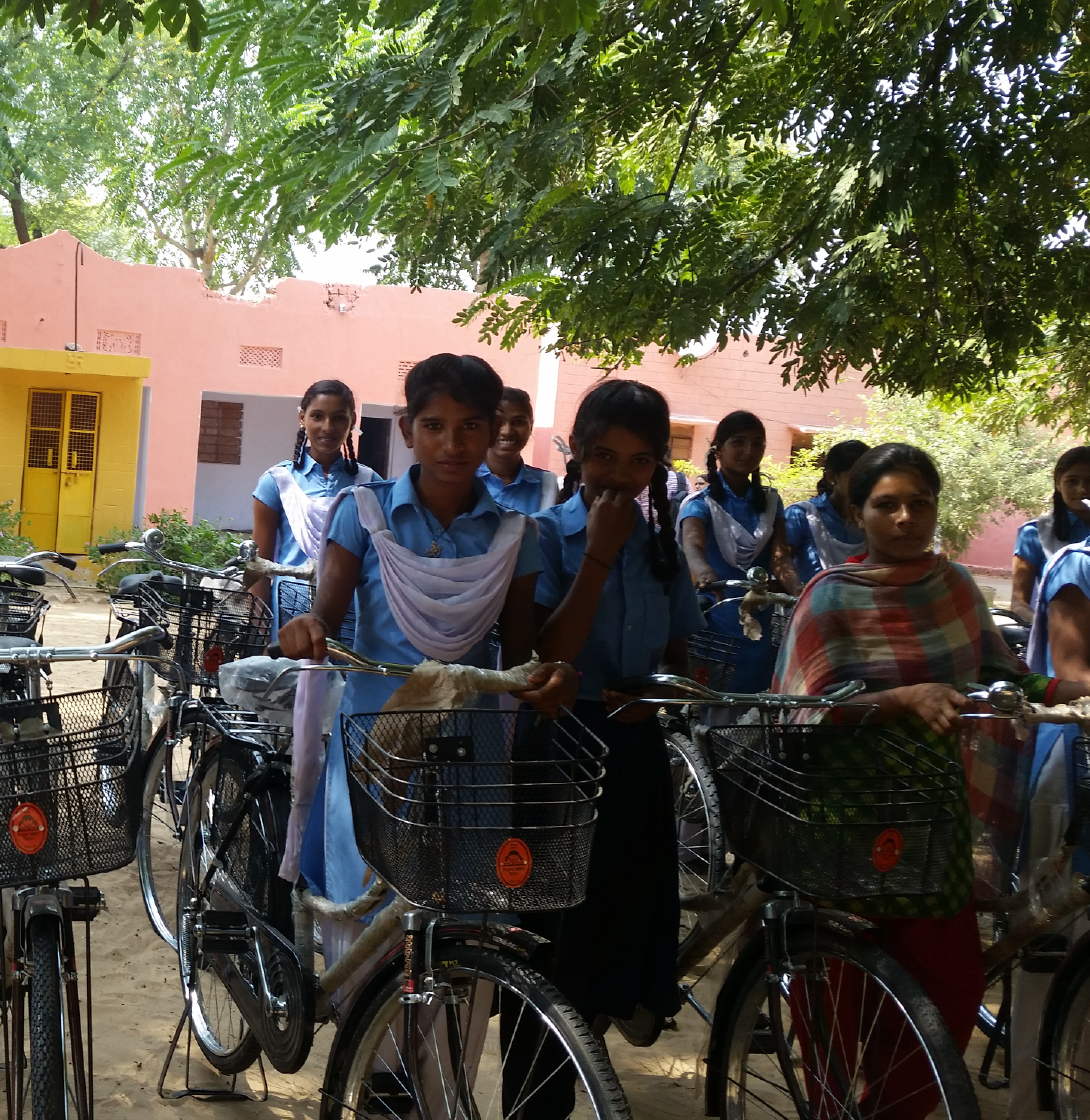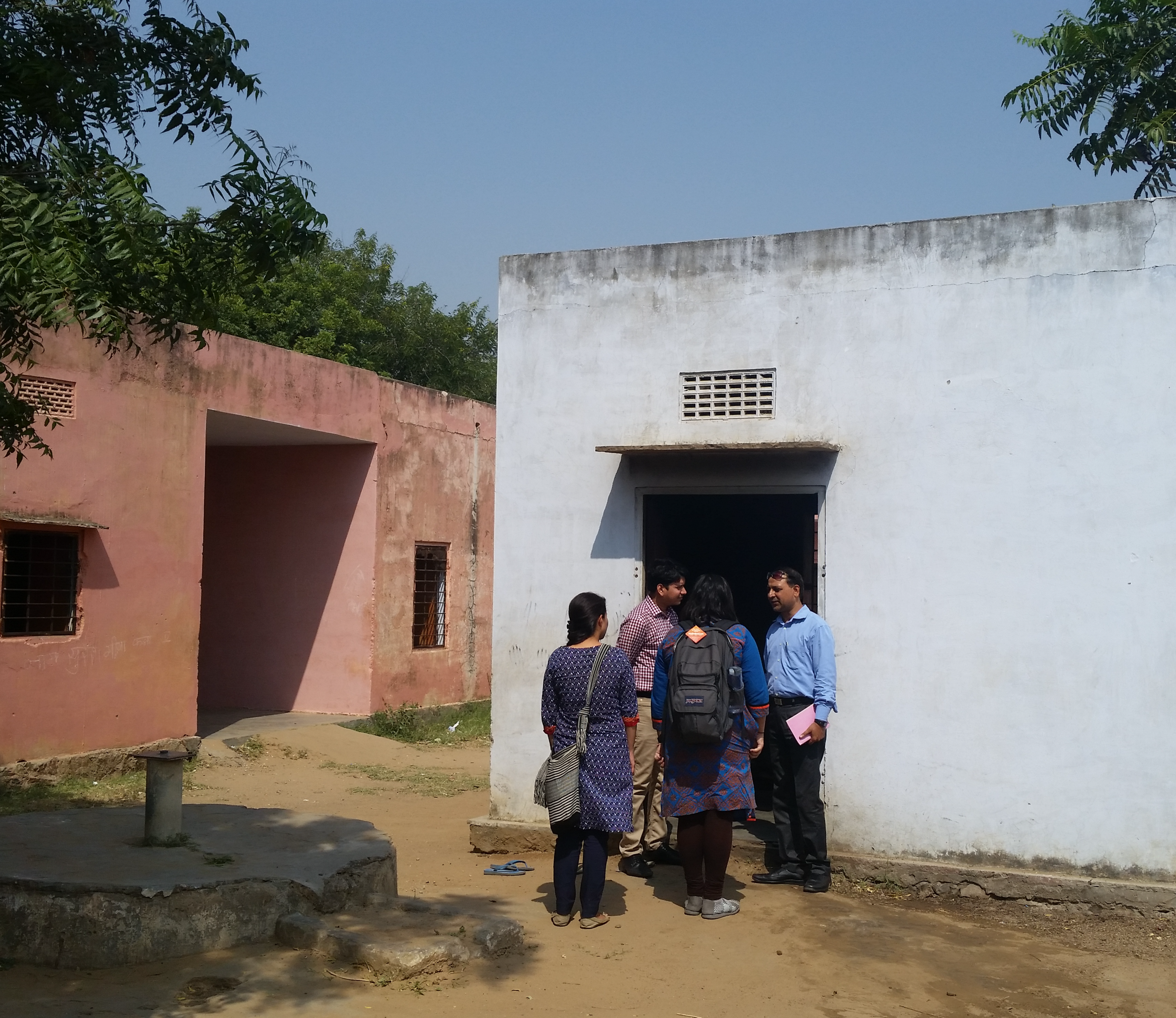More than 12,000 elementary and secondary schools in Rajasthan have been merged to create “Adarsh” schools under the Adarsh Yojana initiative, which is a Rajashthan Department of Education program to implement large scale educational programs. These schools will be properly staffed and equipped with sufficient resources to provide quailty education.
Adarsh tackles the challenge of small and under-resourced schools while simultaneously creating model schools that will become driving agents of change. We support Rajasthan’s Department of Education in developing sound policy for the Adarsh Yojana initiative and translating that policy to practice.
A Focus on Smart Implementation
“To be embedded within a mission-driven project and oversee its close implementation at the state level is an unparalleled opportunity. The very thought of this makes me feel the work is important. ”
We see in our work that effective implementation is key to the success of large-scale government programs. Accordingly, our team has focused on implementation in a number of the initiatives we are working on with the Rajasthan government, including community engagement, the State Initiative for Quality Education (SIQE), and staffing improvements.
Within the scope of community engagement, we are strengthening the role School Monitoring Committees (SMC’s) play in getting local stakeholders invested in creating effective “Adarsh” schools. We visited SMC’s across the state to better understand the opportunities and challenges in building community engagement through SMC’s.
Based on these learnings, our team is working with the Rajashthan Council of Secondary Education (RCSE), UNICEF, and other partners to develop SMC guidelines and community training modules that incorporate these key findings.
IIC Fellow Sonia Dhawan observes that community engagement is a crucial, but often overlooked component of successful education systems. “It can sometimes take last priority in the educational sphere,” she says, “but the team has come in at a particularly exciting moment for Rajasthan's community engagement efforts. With the help of UNICEF and other NGOs, the Rajasthan Council on Secondary Education is revamping its community engagement efforts, and it's a really dynamic space right now.”
In our work with SIQE, the focus is primarily on monitoring mechanisms that can help strengthen the program. We have sought to understand the impact of training principals and teachers in SIQE pedagogy by reviewing training feedback data. One of our recommendations, based on the feedback data, was a certification mechanism to incentivize principals to make reforms in their schools. By taking a close look at how the program functions, we realized that minor changes could have big implications. Many of the ‘solutions’ we’ve proposed are small tweaks that can make someone’s job easier or streamline the transmission of information.
Our team has also drafted a policy to improve and streamline the state's teacher transfer system, which was recently approved by state ministers. Using the policy as a foundation, we are developing the technical capacity within the government to ensure that this policy is properly implemented.
On-the-Ground Challenges and Opportunities
Our team has been challenged and inspired by the scope of our project. We never realized how challenging scale could be. Working with 13,000 schools spread over 33 districts, 257 blocks of Rajasthan is a big undertaking.
Throughout our work this year, we have encountered numerous learnings that informed our approach. One of our early takeaways was that it is important—if difficult—to get a full picture of on-the-ground realities in order to formulate solutions that will really work. Sonia reflects, “It's really easy to see someone not performing well and assume the worst, but most times these people have a lot of invisible factors working against them. It's hard to anticipate these factors when we're assigning work or issuing guidelines from different environments.”
Thus, our approach is to find solutions that are effective at all levels of the educational system whenever possible. We see the importance of increasing the capacity of individuals at all levels of the education system under a unified goal. It is crucial to not only give people the skills and the tools they need, but to also provide them a direction to work toward. A unified vision for Adarsh creates a highly motivated environment that encourages staff to take up challenging tasks involved in creating model schools.
We have built relationships among local stakeholders as well as high-level officials across the state in order to bring local knowledge into policy-making decisions. We’ve been able to to build trust with parents and school staff working on the ground, such that they feel comfortable giving us honest feedback. Furthermore, it is rewarding when government officials tell us they are better able to understand what is happening on the ground based on the data and findings we are presenting to them. Ankit recounts, “Some of our proudest moments come during the highest level steering committee meetings, when the principal secretary applauds [our] efforts... or personally asks one of us to share our insights during the meeting.” Ultimately, we are thrilled to have the opportunity to work with the Department of Education at such a pivotal point in educational reform.
Ankit Tulsyan, April Stewart, Kathy Quintero, Shoikat Roy, and Sonia Dhawan contributed to this article.



